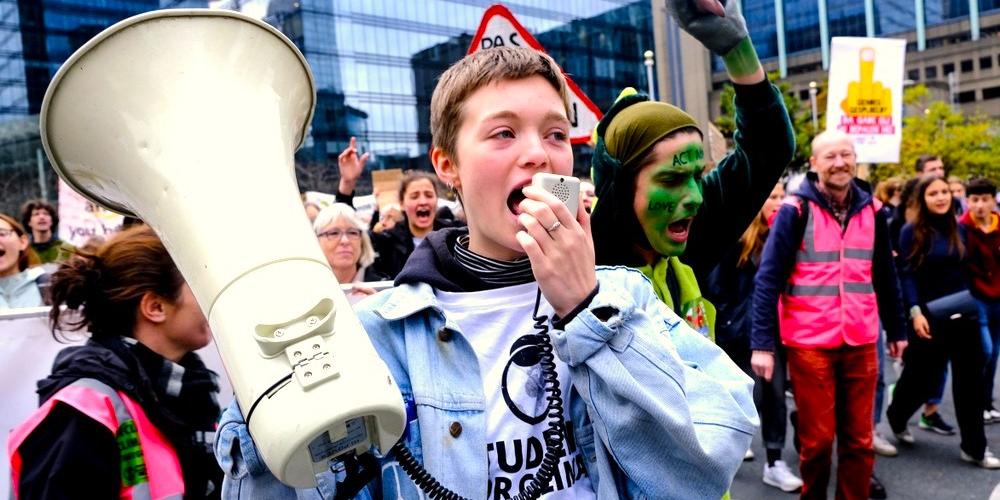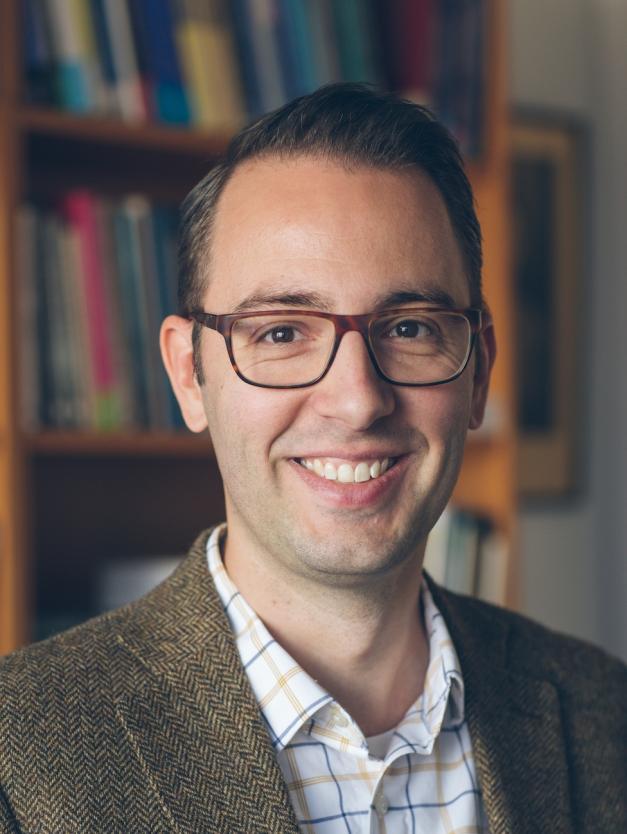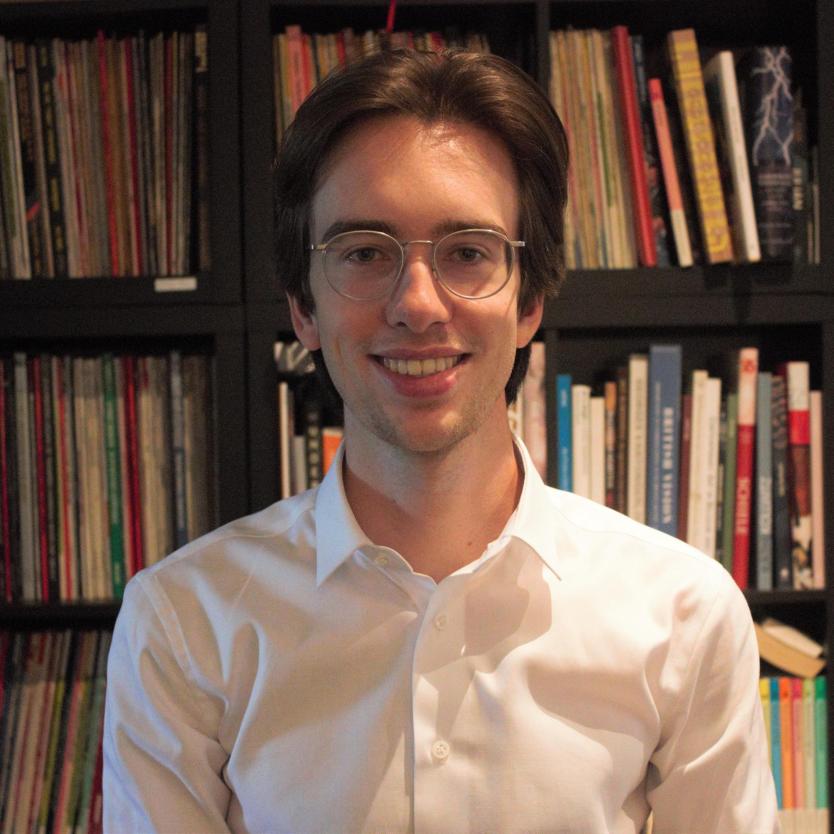
Our society is full of unease and polarisation is a major concern. What do VUB political scientists think about it? PhD student Kamil Bernaerts, supervised by Professor Didier Caluwaerts and in collaboration with PhD student Benjamin Blanckaert, has won the Frank Cass prize for the best article of 2023, for his research on democracy and polarisation. Both Bernaerts and Caluwaerts are associated with the VUB Department of Political Science and the new DFUTURE research group. “Today there are much more emotional forms of polarisation,” they say.
The Hannah Arendt Institute organises the Facts to Act festival, which aims to bridge science and practice to address polarisation in society. The institute is an initiative of the VUB and UAntwer
How worrying do you think polarisation is?
Didier Caluwaerts (DC): “It is obviously problematic that in a society some groups grow apart and conflict between them intensifies. That is a problem for democracy, where you have to reach a decision together. However, the fact there has been a lot of focus on polarisation in recent years – and especially since Trump was elected – doesn’t mean there is more polarisation. If you look at it from a historical perspective, I don’t think it is more problematic than it was 40 or 50 years ago. Belgium then was certainly not a perfect homogeneous society without conflict. It was a deeply divided society then, too. If you ask me, it’s the nature of polarisation that has changed, not the intensity.”
Kamil Bernaerts (KB): “Today, there are much more emotional forms of polarisation: hating and cursing each other, effectively denying each other rights and taking matters into your own hands, as we saw with the people who stormed the US Capitol. Look at how certain politicians treat each other, how they treat other powers, how they criticise the judiciary. That is why I am concerned about the state of our democracy. My motivation to do the research started from a deep, personal concern. It was in the middle of the Covid pandemic, when a lot of deep tensions rose to the surface.”

Didier Caluwaerts
What is the conclusion of your research?
DC: “Since people often talk about polarisation, our central question was whether every democracy suffers from polarisation to the same extent. After all, you have majority democracies, like in the US, where one party is in power, and you have consensus democracies, like in Belgium, where different parties have to make policy together. Our research shows that majority democracies have more polarisation. It’s ingrained in the system; just one group determines the direction of travel. So there is more chance of frustration among the often large group who are not in power. In consensus democracies, parties and social groups are forced to work together. There, according to our research, there is less polarisation. The overall conclusion is: the more inclusive the political institutions, the less potential conflict.”
What do you mean by inclusive?
DC: “In this context, it’s not about inclusiveness in the sense of gender, minorities or anything else of that nature. It primarily refers to power-sharing between different groups. These can be social groups, or linguistic, religious or ethnic. For example, in countries like Belgium and the Netherlands, you have inclusive institutions with proportional representation in parliament and broad coalitions in government. Every group has to be heard.”
“To dismiss people as populist and their proposals as rubbish actually feeds polarisation.”
In a consensus democracy, as in countries with proportional representation, there is a lot of discussion before a decision is made. Does this increase acceptance?
KB: “Yes, because you have to agree with various parties. You also get wider acceptance because more issues are discussed. The discussion covers the different opinions and interests of most parties. That increases legitimacy and acceptance among the backbenchers.”
Does this also increase the quality of decisions?
DC: “Decision-making is slower, but the results are more positive, if we look at economic growth, at inflation, economic inequality, climate policy or corruption. On those social indicators, consensus democracies really score better over the long term.”
Citizen initiatives are becoming more popular. Citizens are increasingly taking matters into their own hands to accomplish something themselves. This can range from fixing up a playground to playing a role in policy. The government limits itself to advice, legal or financial support, for example, but it can also remain completely absent. More information can be found at the Flemish government, De Wakkere Burger and Burgervuur.

So is the conclusion that there should be much more social debate?
DC: “We have now done research on inclusive political institutions. But I think you can apply that much more broadly, and start looking at more civic participation and more civil society involvement. That can certainly lead to less conflict, and better political outcomes. In doing so, you should not exclude arguments because you disagree with them socially or ideologically. On the contrary, they should be captured, because they can point to a social unease.”
KB: “Every voice matters. Especially now that many people’s unease is leading to the rise of extreme parties. Dismissing people as populist and their proposals as rubbish actually feeds polarisation. These emotions should be allowed on the political field. Everyone deserves to be heard, as long as the debate is carried out in a constructive manner.”
“I think citizens’ initiatives are the future, even more so than representative democracy”
We often hear that the educated class has lost touch with the rest of society. Is that true?
DC: “Again, if we put that in historical perspective, I think the situation is no worse today than it was 40 or 50 years ago. Back then, politics consisted mostly of men with PhDs in law, economics or political science. So the gap is probably smaller today. If it is true that the highly educated middle class has little contact with groups in which there is a lot of discontent, then in a democracy you can create the conditions for consultation and start constructive dialogues.

Kamil Bernaerts
“Journalists, politicians and academics often like to complain about the crisis and quality of democracy, as if it were all better in the past. But there has never been a perfect democracy. Democracy is never finished. We need to constantly improve the process of decision-making. And citizens can play a big role. There have never been more opportunities for people to make themselves heard: you can participate through citizens’ initiatives, forums, surveys, etc. Of course, it is essential that the results of those initiatives are translated into political action. And that is another big challenge: how do we put that into practice? Democracy remains a work in progress.”
KB: “Social media has made it possible for everyone to voice their opinions. But because of algorithms and the disappearance of gatekeepers, such as journalists or scientists, the most extreme opinions emerge. That doesn’t make anyone happy. At a conference recently, one speaker suggested that we might be in a kind of transition period: an overcorrection to an elitist past. The noise on socials is that of the groups who have been ignored for too long.”
How can people regain trust in each other?
KB: “People need to be involved in policy at an early stage. Citizens’ initiatives can be an important tool for this. The experiments that are most successful in depolarising citizens are those that have good moderation, where everyone can speak, where different population groups can participate, and that last long enough. Then people come closer together, depoliticise and put constructive proposals on the table. I think civic initiatives can play an important role in regaining that trust, as long as it is done in a transparent way and with proper follow-up.”
VUB Research Centre For Democratic Futures
The Research Centre For Democratic Futures (DFUTURE) was recently established at the VUB. It consists of seven academics working on some 25 research projects. Didier Caluwaerts: “This research group will mainly address the major themes concerning democracy. The first part is diagnosis of problems in democracy, including Kamil’s PhD on polarisation. But there are also those dealing with the crisis of democracy, inequality in democracy, etc. The second part is about the search for remedies, such as democratic innovations and institutional innovations.”